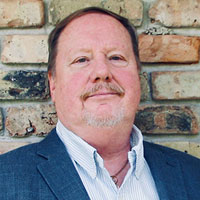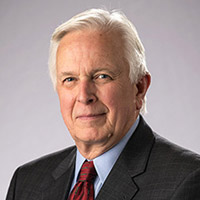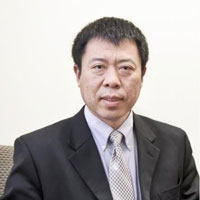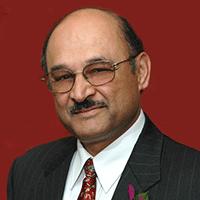Modularization and Advanced Manufacturing
The fundamentally different approach to manufacturing Small Modular Reactors / Advanced Reactors will challenge both nuclear suppliers as well as regulators. In order for new nuclear reactors to scale at the pace necessary, improvements in construction approaches and techniques – many of which are already used in in other industries – will be needed.

Robert Stakenborghs
Track Chair
Advanced Reactor Research
Timely advancements through research, development, and demonstration (RD&D) activities in collaboration with government, industry and international partners underpin the accelerated path required for advanced reactors. Ongoing activities at national laboratories and facilities for civil and academic nuclear RD&D are focused on improving economic competitiveness and reducing the technical and regulatory uncertainties for deploying new nuclear reactor technologies.

Yassin Hassan
Track Chair
Code Development and Harmonization
The rapid deployment of advanced reactors will require a change towards the international standardization of reactor designs and the harmonization of approaches to licensing, codes, and standards.

Robert Stakenborghs
Track Chair

Richard Laudenat
Track Co-Chair
Digital Twins
Digital twins, beginning in the pre-development stage, will offer new advantages for the nuclear industry, including design, construction, operation, and even safety. It's the beginning of an entirely new, very modern way to think about nuclear operations.

Richard Laudenat
Track Chair
Reactor Technologies
A wide variety of advanced reactor designs are being developed internationally. Advanced reactors will have simpler designs, be inherently and/or passively safe, and have an expected reduction in costs. Panel, technical paper and round table session discussions will focus on the various technologies and the challenges they are encountering, along with their timings for deployment.

Guoqiang Wang
Track Chair

Maury Pressburger
Track Co-Chair
Regulatory Modernization
New reactor technologies approach safety in different ways, and it is important that the regulatory framework for these new designs can accommodate these different approaches while ensuring safety.

Nicholas McMurray
Track Chair

Asif Arastu
Technical Program Chair
The ASME Journal of Nuclear Engineering and Radiation Science is the official technical journal for this conference. After the conference, all authors are invited to submit their augmented and revised full-length research papers into the Journal for a Special Issue dedicated to CARD 2023!